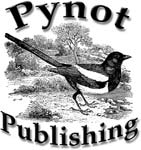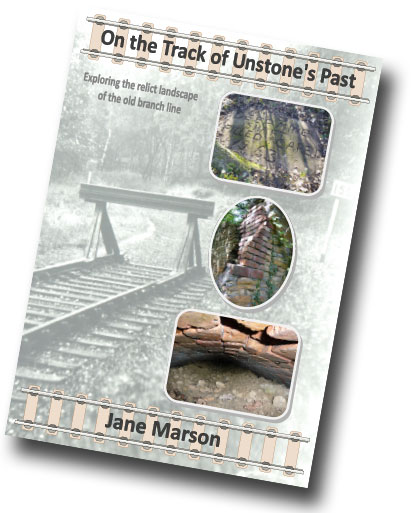Click here to download an order form for payments by cheque (UK customers only). Home | Railway History | Local History | Staffordshire Bull Terriers | Literary Drinkers Please request a quote for multiple purchases to benefit from reduced postage! |
|
The second print run of ths popular title has now sold out. It was always an ambition of Jane's to write a book, though she never imagined it would be a history book written in her 50s! As a teenager Jane was totally switched off history as a school subject, having more of a bias towards geography and geology. What sparked her interest in later years was a realisation that because Jane had lived in Unstone in the same house for over half a century, she had many historical recollections which seem beyond the comprehension of her children and thus might be considered noteworthy. As a baby Jane was photographed in the garden with a huge spoil heap known as Unstone’s Mountain in the background. In her early childhood she slid down the spoil heaps on a tin tray and played in the ruins of an old blacksmith’s shop. As a teenager, Jane balanced on the once shiny rails of the Unstone Line which were then used as sidings for a few ancient carriages. Jane has since taken her children along the Unstone Line for much safer childhood adventures as they all witness the remarkable transformation by nature of the once industrial landscape. At the beginning of 2011, Jane attended a meeting about the future management of Frith Wood and the old colliery branch railway known as the Unstone Line. The meeting was well attended and demonstrated much passion and interest in our ancient woodlands and industrial heritage and how best to preserve them for the future. Thus began her quest to collate information from railway and mining sources, scrutinize old maps and census data, photograph remnants of the industrial archaeology and collect information from local residents to tell the story of Unstone Line. On the Track of Unstone’s Past explores the relict landscape of the Unstone Colliery Branch Line. It demonstrates the inextricable link between coal and rail. The journey begins in the south near Unstone Junction and traces the course of the line through the site of Unstone Colliery to Crow Lane Bridge and beyond to Summerley and Callywhite Lane. The pit yard of Unstone Main Colliery is explored through remnants in today’s landscape which include an ancient tramway connecting Apperknowle Colliery. Rows of terraced houses, so synonymous with mining activity are discussed as important reminders of our social history. Old maps, plans and colliery records are used to piece together the industrial archaeology on the site of Mackerel Mine. A recurring theme, demonstrated through striking images of the Summerley coke ovens, is the transformation by nature of a once heavily industrialised and polluted landscape. An 80 page book in full colour which seeks to make history tangible, meaningful and memorable in an appropriately humorous way, offering something for the railway and mining enthusiast, the industrial archaeologist and those who, like Jane, had childhood adventures with little consideration for health and safety! Now bitten by the writing bug, Jane hopes to deliver a second book about Unstone which will examine rather unusual moments in Unstone’s social history which may otherwise be forgotten. The book extends to 84 pages (including covers) and is fully illustrated with many colour photograph, archive images, documents, maps and diagrams. The chapters are: Preface |


 On the Track of Unstone's Past -
On the Track of Unstone's Past -